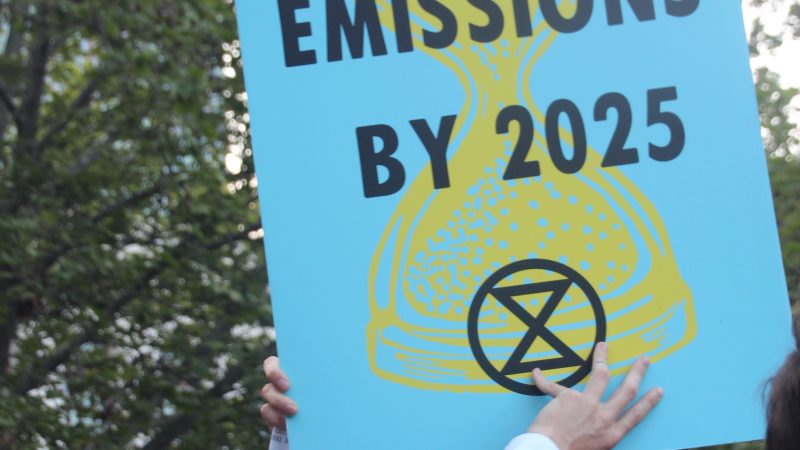‘Nigel Farage and others are wrong to suggest we should pursue a referendum on net zero.'

Robbie MacPherson is the Environment APPG coordinator and political adviser
The UK, for good reasons, has enjoyed a period of great consensus on the need to cut carbon at speed and scale. All the major political parties committed to action to achieve a net zero carbon economy by 2050 in their 2019 election manifestos. And people in every part of the country consistently say the environment is one of their top concerns.
Recent polling in relation to the gas price crisis has again confirmed this: climate action is popular; climate delay is not.
But we shouldn’t take this consensus for granted. Especially against a backdrop where the cost of living is spiralling out of control, and the energy price cap rise is set to stretch household budgets further as wages remain flat.
It is becoming clear that a threat to the consensus is rising. Cabinet ministers, conservative backbenchers (the ‘Net Zero Scrutiny Group’), media commentators and political outriders are mobilising to claim that green policies are a distraction and the wrong priority for now. This is despite the overwhelming evidence that well designed climate policies also provide solutions to many of the hardships that people are experiencing.
A ’ sluggish approach to decarbonising power and home heating’
In fact, it is the sluggish approach to decarbonising power and home heating that has made us so vulnerable to soaring gas prices. If the UK had been more ambitious over the past ten years, diversifying our energy sources and improving home insulation, households might not be facing the hardship now of an extra £700 a year on their energy bills. Surely then, as the energy regulator Ofgem says, Britain should “push harder” to get net zero done. Only by doing so will we shore ourselves up against future shocks like the one we’re seeing now.
This is why Nigel Farage and others are wrong to suggest we should pursue a referendum on net zero. Now is not the time to ‘rethink’ it, instead we should double down to deliver on that promise.
Grimsby as an example of where the green economy is working
You only have to look at Grimsby for a great example of where the green economy is working. More money in offshore wind has rejuvenated entire communities. Over a decade of investment in green technology has moved 60% of benefit claimants back into work. 90% of a local green energy company’s employees live within five miles of the town.
Net zero critics are right on one thing: to make it work fairly, more democratic scrutiny is needed. Let’s do it, let’s scrutinise what net zero will really mean, without misinformation and with independent evidence and all the arguments considered equally. Fortunately, such a democratic process exists already, not via a referendum, but through the increasingly popular tools of citizen assemblies and juries.
Advantages of net zero scrutiny
The advantage of this approach is it allows policy to be constructed with, by and for people, not as something done to them. Given that the green transition will involve changes to every aspect of our lives – the way we heat our homes, move from A to B and earn a living – this is something that must be done right. More gigafactories, like the one coming to Blyth, expected to produce 300,000 electric vehicle batteries every year, will mean good and secure jobs, and restore pride in place. In renewing our industrial heartlands, it is contributing to a national mission.
Over the coming months of government turmoil and cost of living pressures, this debate will undoubtedly polarise. But that can’t be allowed to happen, the stakes are just too high to put the brake on progress now. As the COP26 climate summit in Glasgow concluded, we are in the decade where action must step up, for all our sakes.
By inviting people, in all places, of all backgrounds and across the political spectrum, to participate in shaping our country’s economic transition, to support politicians in making decisions that work well for their constituents, there is a very good chance that the consensus on net zero won’t just be maintained, it will be strengthened.
Left Foot Forward doesn't have the backing of big business or billionaires. We rely on the kind and generous support of ordinary people like you.
You can support hard-hitting journalism that holds the right to account, provides a forum for debate among progressives, and covers the stories the rest of the media ignore. Donate today.



